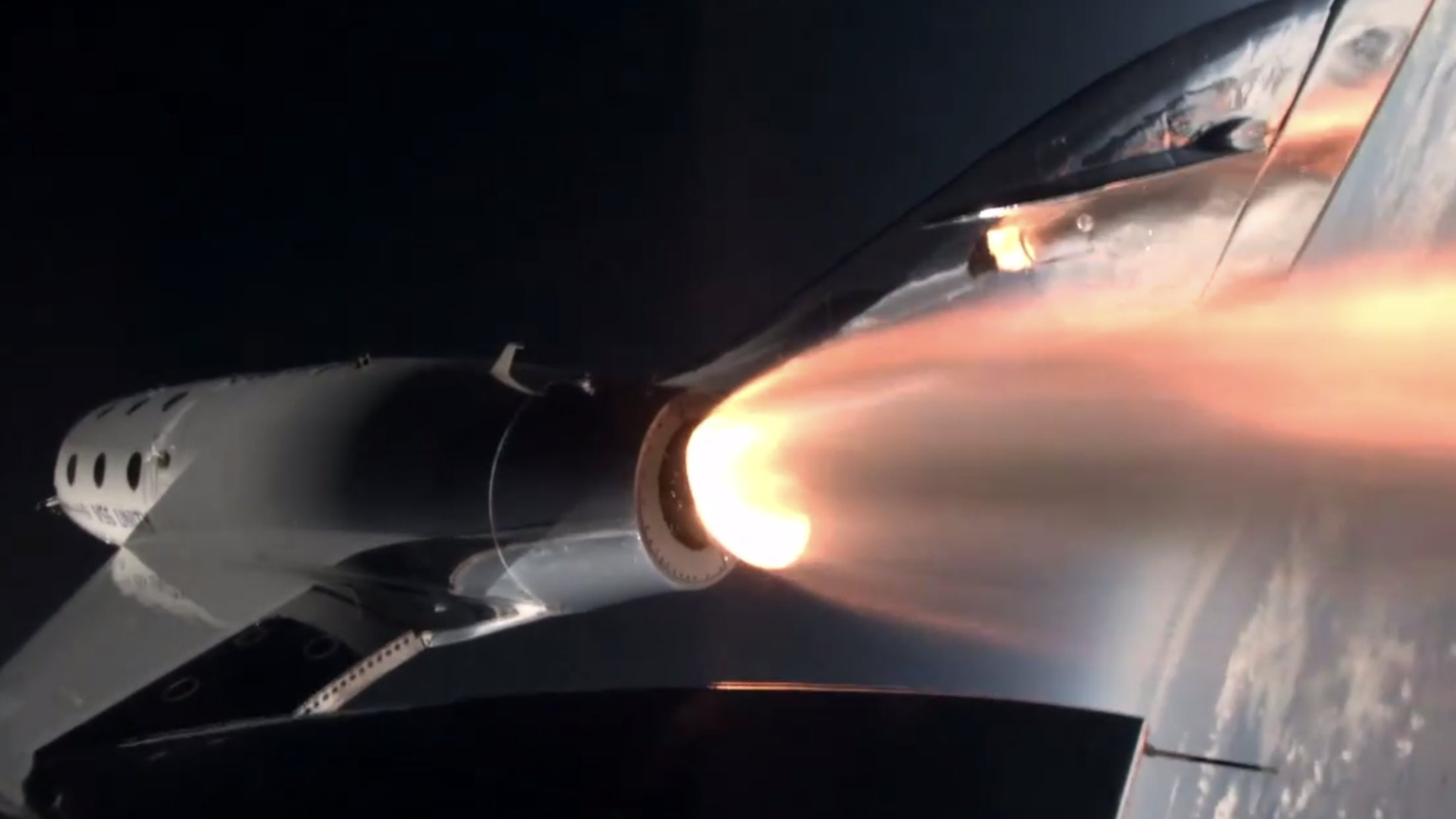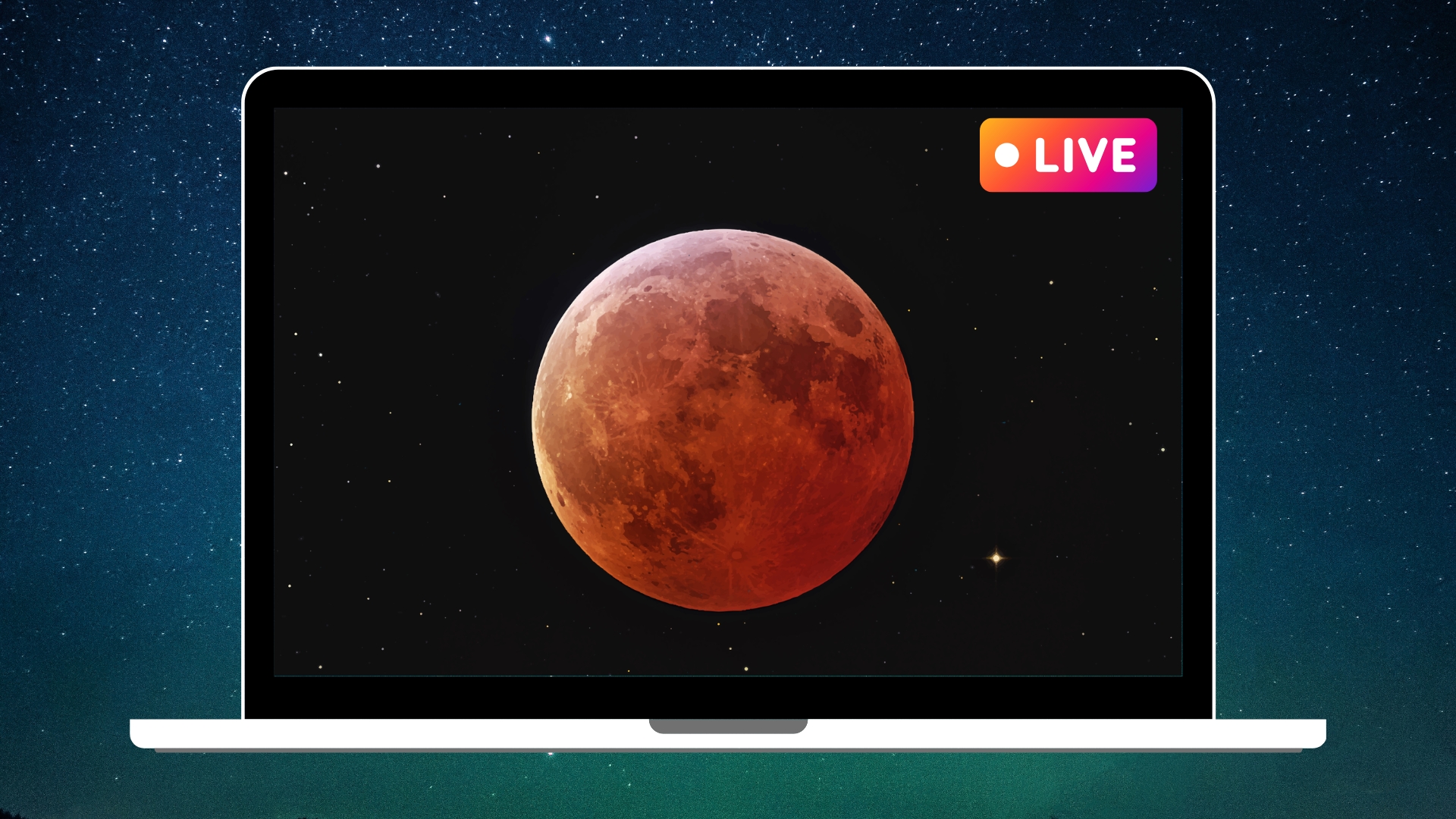Virgin Galactic launches 1st Ukrainian woman to space — and 3 others — on Galactic 06 suborbital flight (video)
Breaking space news, the latest updates on rocket launches, skywatching events and more!
You are now subscribed
Your newsletter sign-up was successful
Want to add more newsletters?
Virgin Galactic just launched its sixth commercial spaceflight.
That mission, called Galactic 06, sent four private passengers to suborbital space and back, among them the first Ukrainian woman ever to reach the final frontier.
"Welcome back to Earth, #Galactic06! Our pilots, crew and spaceship have landed safely at Spaceport America, New Mexico," Virgin Galactic said in a post on X shortly after touchdown today.
Related: Virgin Galactic launches researchers to suborbital space on 5th commercial flight (video)
As that post noted, Galactic 06 flew from Spaceport America, in southwestern New Mexico. Virgin Galactic's carrier aircraft, VMS Eve, lifted off from the site around noon EST (1700 GMT; 10 a.m. local time), with the four-passenger space plane VSS Unity under its wings.
Eve dropped Unity at an altitude of about 45,000 feet (13,700 meters), at which point the space plane ignited its rocket motor and headed up to suborbital space.
Galactic 06's passengers experienced a few minutes of weightlessness and got to see their home planet against the blackness of space before coming down to Earth for a runway landing at Spaceport America about 90 minutes after liftoff. (Virgin Galactic did not livestream the mission; it posted updates on X during the flight.)
Breaking space news, the latest updates on rocket launches, skywatching events and more!
Virgin Galactic didn't reveal the passengers' identities in the leadup to Galactic 06, giving only their home nations and/or states. One is from Texas, one is from California, one is an Austrian and the other hails from Nevada and Ukraine, the company said.
We got their names today: Lina Borozdina, Franz Haider, Neil Kornswiet and Robie Vaughn. Borozdina became the first Ukrainian woman to reach space, according to Virgin Galactic.
Commander C.J. Sturckow and pilot Nicola Pecile flew VSS Unity today, and Michael Masucci and Dan Alix were at the controls of VMS Eve.
Galactic 06 was Virgin's first mission of the year, and one of the final flights for Unity, if all goes according to plan. The company has said that it will soon retire the space plane, which has conducted all Virgin spaceflights to date, to focus on its forthcoming "Delta class" vehicle.
Each Delta plane will be able to fly up to twice per week, according to Virgin representatives. The first Delta vehicle is on track to start test flights in 2025, and the company wants it to begin commercial operations the following year.
Virgin Galactic has a competitor in the suborbital space tourism industry — Blue Origin, Jeff Bezos' aerospace company, which takes people and payloads aloft with a rocket-capsule combo called New Shepard.
New Shepard recently returned to flight after suffering a failure during an uncrewed research mission in September 2022. The vehicle hasn't carried people since August 2022.
Tickets to ride the six-passenger Unity currently cost $450,000. Blue Origin hasn't revealed its ticket prices.
Editor's note: This story has been corrected to state that a seat to fly with Virgin Galactic currently costs $450,000, rather than $400,000. VSS Unity also currently seats four passengers, not six, as originally stated.

Michael Wall is a Senior Space Writer with Space.com and joined the team in 2010. He primarily covers exoplanets, spaceflight and military space, but has been known to dabble in the space art beat. His book about the search for alien life, "Out There," was published on Nov. 13, 2018. Before becoming a science writer, Michael worked as a herpetologist and wildlife biologist. He has a Ph.D. in evolutionary biology from the University of Sydney, Australia, a bachelor's degree from the University of Arizona, and a graduate certificate in science writing from the University of California, Santa Cruz. To find out what his latest project is, you can follow Michael on Twitter.

